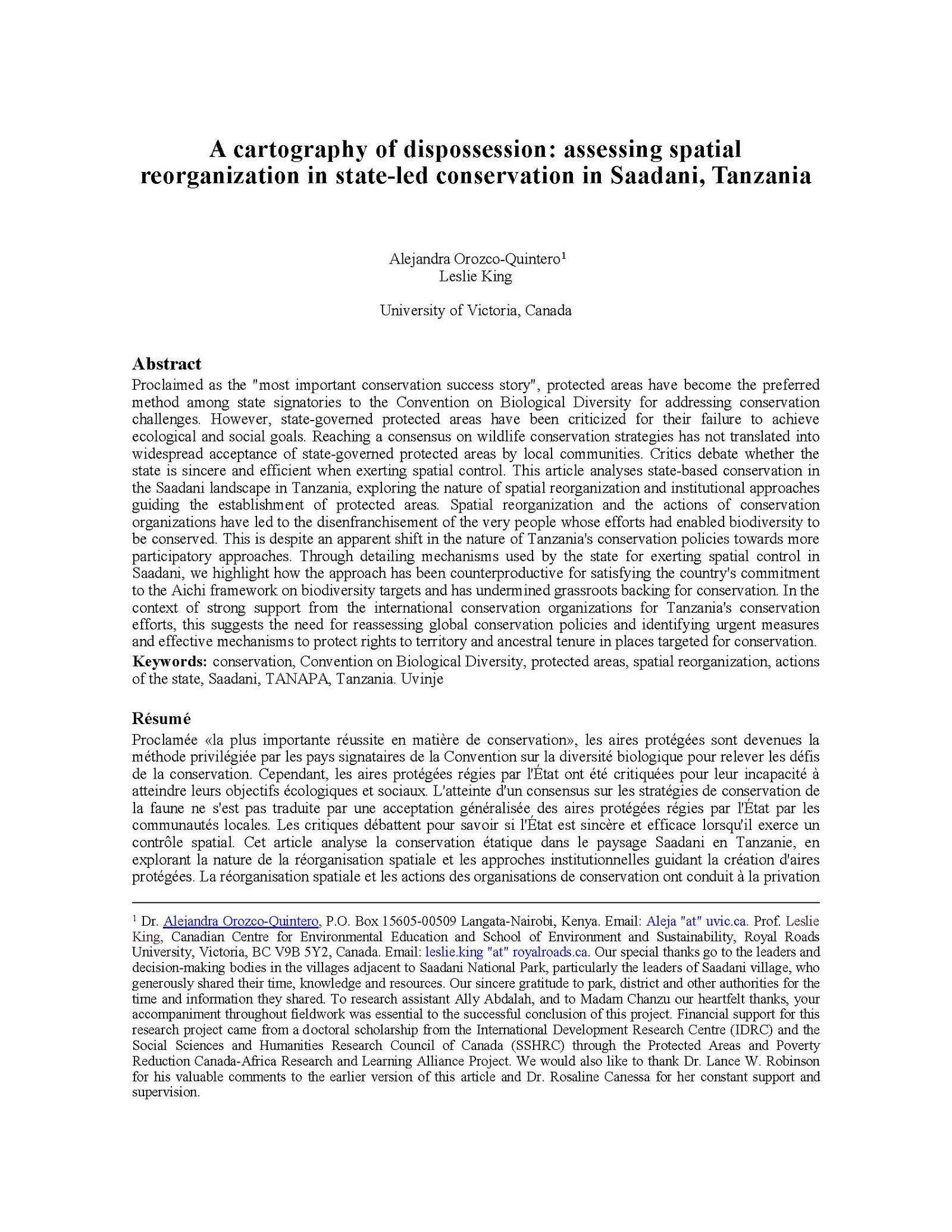
About Alejandra
Peer-reviewed Research
Examining Injustice in Conservation Practice to Heal Our Approach to Relating with Indigenous Communities and the Planet
The Researcher's Dharma: Using Science to Serve the Heart™
A Duology
A Pathway to Integration. Research traditions have often emphasized methodological objectivity, sometimes creating perceived divisions between scientific evidence and other forms of knowing, between documenting what exists and imagining what could be.
My experiences in the field have prompted me to question the usefulness of these divisions, particularly for the communities involved in research. While rigorous documentation matters (we cannot address what we don’t acknowledge), documentation alone rarely leads to transformation. Scientific inquiry might serve as one foundation among many for envisioning different possibilities.
The Researcher’s Dharma™ represents an invitation to explore the potential connections between these approaches, to consider what might emerge when we bring careful attention to both empirical evidence and relational understanding.
Through examining a specific case study of conservation practice and community rights, this work explores how research might contribute to both deepened understanding and thoughtful engagement with complex situations.
In bringing this duology to completion, I’m embracing both traditional research methods and emerging tools. While the original research conducted between 2012-2018 forms the foundation of this work, I’m utilizing AI assistance to help organize findings, identify gaps, and create accessible materials that might contribute to addressing the challenges documented. This collaboration reflects my commitment to both completing this important work despite time constraints and to exploring the potential of emerging technologies to serve heart-centered research.
This work emerges from a place of profound respect for the complexity of integrating different knowledge systems and the responsibility of engaging with communities’ lived experiences. I approach this task not with presumed mastery, but with committed engagement and ongoing learning.
And yes, I’ve always been in-over-my-head in my engagements with the world… My research colleagues call it ‘ambitious inquiry.’ My Wayuu relatives call it ‘talking to spirits you haven’t been properly introduced to.’ Either way, I keep showing up with my notebook and my heart wide open. 😉
The Duology
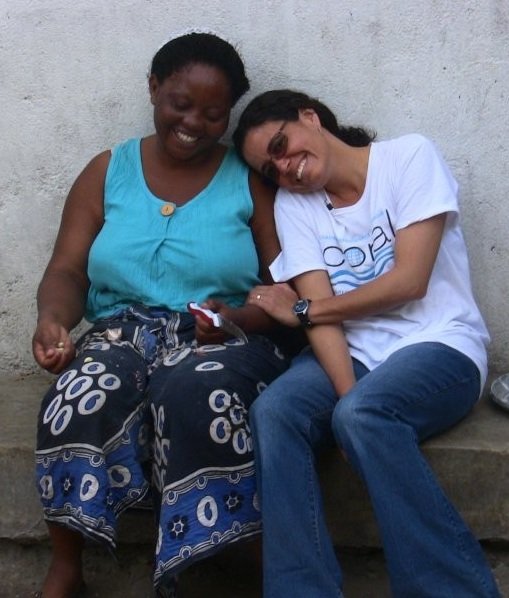
The Researcher’s Dharma: Using Science to Serve the Heart™ is a two-volume work that explores the intersection of rigorous scientific inquiry and heart-centered awareness. This duology presents both evidence related to conservation and community rights and reflections on approaches to research and advocacy.
Through complementary volumes that document reality while considering new possibilities, this work invites readers to reflect on how science might serve a deeper purpose. The first volume establishes the factual foundation through research on the Uvinje case in Tanzania, while the second volume explores the potential that emerges when we bring our full humanity to scientific inquiry.
Together, these volumes aim to create a bridge between acknowledging what is and envisioning what could be, between the science of documenting challenging situations and the art of healing our relationships with communities and the natural world.
Volume I: The Science of Injustice
Beyond Contested Maps: The Uvinje Community’s Heritage, Land Rights Documentation, and Ongoing Struggle for Recognition
This volume examines the case of Uvinje community’s land rights situation within Saadani National Park, Tanzania. It begins by exploring the community’s cultural connections and historical presence in the region, documenting their relationship with the coastal landscape through available records and community accounts.
The research combines different types of evidence, including historical maps, primary spatial data, government documents, and community testimonies, to examine the discrepancies between official park boundaries and the community’s understanding of their ancestral territories. Through this case study, the volume considers how mapping decisions reflect underlying power dynamics in conservation practice.
Rather than merely focusing on boundary disputes, this volume also examines the community’s role in conservation efforts and their vision for their lands. It documents the advocacy initiatives undertaken by both the community and supporting organizations, reflecting on why appeals for redress have faced challenges despite substantial documentation.
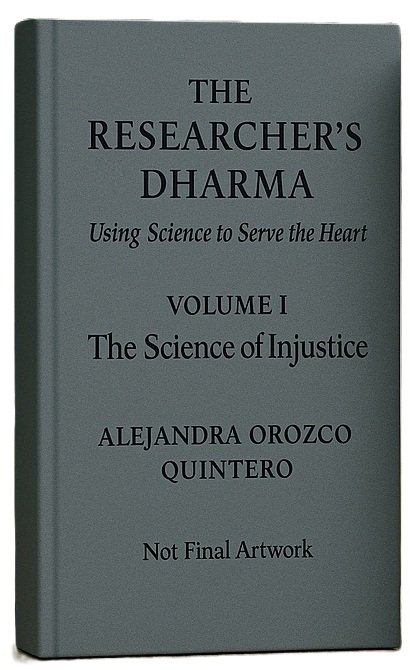
By gathering this evidence, Volume I aims to contribute to conversations about the complex intersections of conservation approaches, land rights considerations, and community participation in protected area management, offering one case study that may have relevance for similar situations elsewhere.
I am currently seeking support specifically to complete this first volume, while developing Volume II at my own pace. Your contribution will help bring this important documentation to the world.
Support Volume I using PayPal Me
Volume II: The Heart of Research
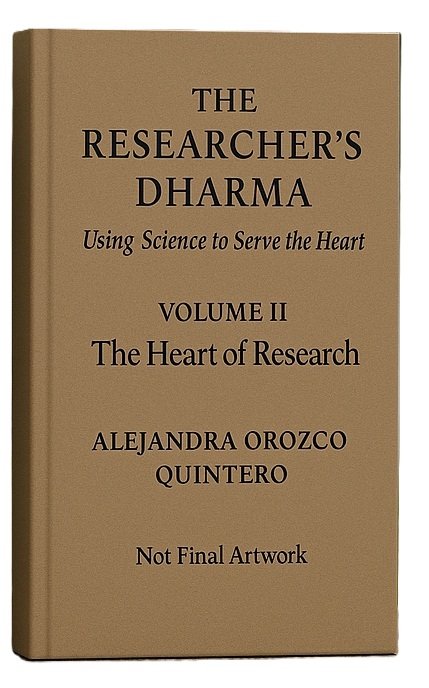
Between Worlds: A Latina Researcher’s Path Through Indigenous Wisdom, Academic Rigor, and Heart-Centered Practice
This volume reflects on the methodological questions that emerged during my research experience in Tanzania’s coastal communities. It shares personal observations from my journey as a researcher with Latina and indigenous Wayuu heritage navigating unfamiliar cultural and institutional contexts.
The narrative explores how my background influenced the research process, from question formation to relationship building and interpretation. It considers the challenges and insights that came from simultaneously being both insider and outsider across different knowledge systems, and how this position offered certain perspectives while presenting its own limitations.
Central to this volume is an exploration of what I call “transparent positionality”, an approach that attempts to acknowledge rather than erase the researcher’s perspective. Through reflections on field experiences, including missteps and learning moments, it examines potential ways to engage with both empirical evidence and more intuitive understandings.
This volume poses questions rather than providing definitive answers: How might researchers acknowledge difficult situations while supporting community agency? How can we respect evidence while remaining open to different interpretations? What possibilities might emerge when we consider both analytical and heart-centered approaches to complex social-ecological challenges?
By sharing these reflections alongside the Tanzania case study, Volume II offers tentative thoughts toward more integrated research approaches, that respect scientific methods while also valuing community knowledge systems and the potential of engaged scholarship.
Bridging Scientific Paradigms
We live in a world of duality, light and dark, justice and injustice, evidence and intuition. This work invites consideration of how these apparent opposites might complement one another, creating a more complete understanding of complex realities.
“We cannot heal what we don’t acknowledge. But acknowledgment alone isn’t enough. The science of injustice must ultimately serve the heart’s capacity for transformation.”
Embracing A Transparent Perspective
Scientific inquiry has traditionally valued objectivity, and rightly so. Yet what if true objectivity comes not from attempting to erase our perspectives, but from acknowledging them with transparency?
When we recognize that we all view the world through lenses shaped by our experiences, training, and values, we might maintain rigorous methodological standards while bringing greater awareness to how our positions inform our research.
Expanding Our Understanding
Rather than setting scientific rigor and heart-centered awareness in opposition, what if we explored how they might enhance one another?
The research on the Uvinje case follows established methodological standards while also considering dimensions of understanding that traditional approaches sometimes overlook, creating pathways to more complete insights and potentially more effective solutions.
The evolution of scientific thought has always involved questioning existing frameworks. From Thomas Kuhn’s exploration of paradigm shifts to Bruno Latour’s examination of how cultural contexts shape scientific inquiry, philosophers of science have long recognized that our approaches to knowledge evolve over time.
This work offers an invitation to explore how research might serve both truth and transformation, how rigorous documentation might create foundations for healing, and how heart-centered awareness might open new possibilities for understanding complex situations.
This exploration isn’t about choosing between science and heart, or between evidence and intuition, it’s about discovering what might become possible when we honor both.
The Case of Uvinje
Research in East Africa
For generations, the people of Uvinje in Tanzania have lived in harmony with their coastal homeland, their ethics and ways of living with nature fostering the very ecosystems that make this region ecologically important. Yet their story also includes a profound challenge when Saadani National Park was officially established in 2005.
From 2012 to 2019, while based in East Africa, I engaged in research on the case of Uvinje and Saadani National Park, gathering primary and secondary field data and conducting spatial, institutional, and other analyses. The evidence indicated that Uvinje’s lands were never legally designated for inclusion in the original conservation area known as Saadani Game Reserve that would later become part of Saadani National Park.
The findings revealed spatial disagreements, discrepancies between officially documented park boundaries and what local communities understood as their ancestral territories. These weren’t just abstract mapping issues but had real consequences for villages like Uvinje, which experienced changes to their rights to land they had stewarded for generations.
The research documented instances where conservation plans changed over time, often without adequate consultation with affected communities. This approach has sometimes led to tensions between conservation goals and community rights, potentially undermining both human rights and the aims of conservation by affecting the relationship between communities and their traditional lands.
My findings were published in an open access peer-reviewed journal in 2018, as well as in multiple other formats for diffusion and advocacy efforts. Yet despite this documentation and numerous appeals, the community’s land rights situation remains unresolved to this day.
Philosophers and thinkers have observed that well-intentioned actions can sometimes produce unintended consequences. Conservation is undeniably important, but when implemented without fully engaging the complex realities on the ground, the outcomes may not align with original intentions.
Support This Work
I’m currently seeking support specifically to complete Volume I of this duology. My goal is to raise at least US$10,000 (CAD 13,500) to complete this volume within the next 6 months. Your contribution will help bring this comprehensive documentation to the world, creating a unified resource that makes this evidence accessible to the community, relevant stakeholders, and interested public. By gathering these scattered findings in one cohesive work, we may contribute to renewed dialogue on pathways toward resolution that has remained elusive for so long.
Your support will specifically fund:
- Dedicated writing time and living expenses to complete this comprehensive volume
- Specialized design software for integrating text, images, and documentary evidence
- Professional editing and publication services to ensure the work is accessible to diverse audiences
- Translation of key findings to make them more widely available
- Share The Researcher’s Dharma widely to contribute to conversations about conservation policy and practice, and to help create awareness that might contribute to changing the situation of injustice in Tanzania for the better
- Establish direct contact with the Uvinje community whose land struggle continues to this day, to assess their current situation and ensure the work accurately represents their ongoing experience.
If we surpass our fundraising goal, additional funds will allow for more extensive community engagement and the possibility of offering basic support that the excess donations may permit.
As a thank you for your support, I’ll include your name in a special acknowledgments section at the beginning of the book unless you choose to remain anonymous.
Support Volume I using Paypal Me
“If you’re interested in contributing to this work beyond financial support, there are multiple ways to get involved. I’m particularly seeking assistance with developing a documentary about the Uvinje case, which requires expertise in filmmaking, production, distribution, and funding strategies. Additionally, if you have resources, strategic insights, or ideas that might support Uvinje specifically or collective empowerment more broadly, please reach out to contact@theresearchersdharma.com i welcome collaborations that might enhance the impact of these volumes, help bring the documentary to life, or create additional pathways for addressing the challenges documented.”
The Researcher's Dharma™: In Brief
This short video introduces the essence of The Researcher’s Dharma™ project. In less than three minutes, Dr. Alejandra Orozco Quintero shares the core purpose of documenting the Uvinje community’s experience in Tanzania and her vision for creating a resource that bridges scientific evidence with heart-centered awareness. The video offers a glimpse into why this work matters and how your support can help bring Volume I to completion.
Connect With Me
My additional work can be explored through my research (research4change.ca), consulting (ruwaza.com), publications (ResearchGate), and my practice as a PSYCH-K® Facilitator (alejaorozco.com).
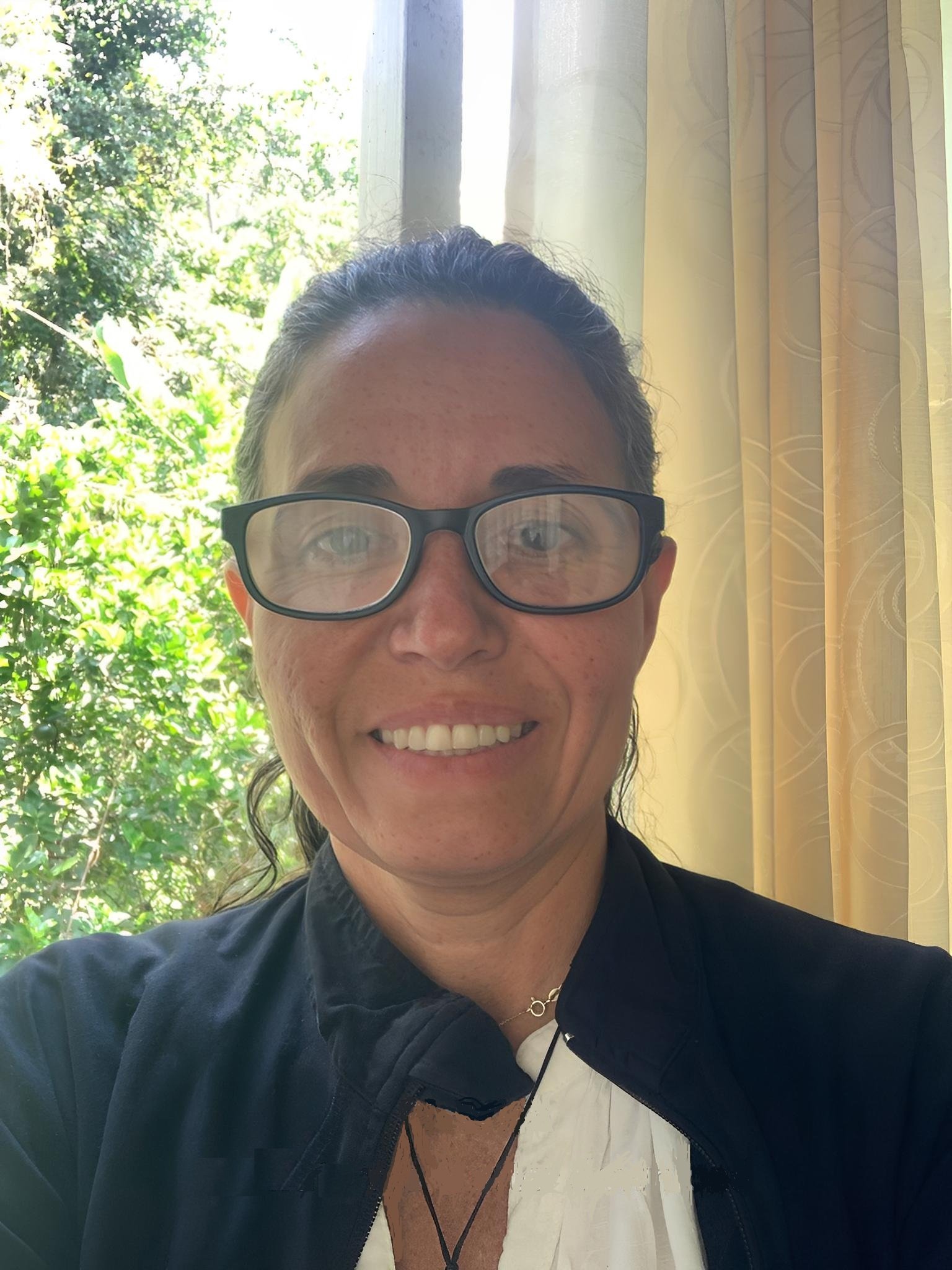
About Alejandra
Peer-reviewed Research
Privacy Policy
© 2025 Alejandra Orozco-Quintero, The Researcher’s Dharma. All Rights Reserved.
